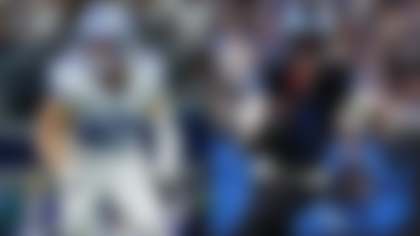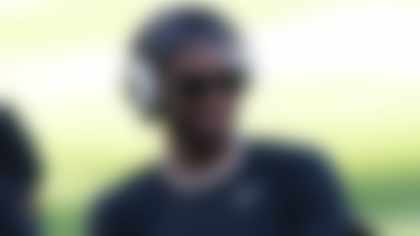NFL Evolution and NFL Health Playbook will feature a guest columnist every Tuesday, each with a different viewpoint of player health and safety from the youth level to pro football.
Dr. Elizabeth M. Pieroth, contributing columnist
The intense focus on concussion in sports has resulted in many positive changes in how concussions are diagnosed, managed and treated. However, the downside of this attention is the proliferation of unproven products and treatments.
Numerous companies are marketing products that they claim reduce the frequency or severity of concussions, or improve the diagnosis and treatment of concussive injuries. Unfortunately, the majority of these cures have not been studied to verify that the actually do what they purport.
This means that consumers need to do their own research but this can be very difficult with the dizzying array of information available online. When examining the validity of a product or treatment, the interested reader should search for studies completed by independent researchers. The authors should not have any financial incentive in the outcomes of the research.
For treatment procedures, empirical support means there are studies that show the particular treatment is more effective than no treatment. For example, the website of one concussion clinic in Chicago stated their treatment protocol resulted in 90 percent of their patients recovering within 2-3 weeks after their concussion. However, we know this same percentage of concussed individuals will recover within 2-3 weeks without any treatment. Was it the expensive and unproven treatment that lessened the symptoms as the company claims or was it simply time?
Consumers also need to be wary of case studies and individual testimonials. There is a well-known influence called "expectancy effect." This occurs when a person experiences an improvement simply because they expected the treatment to work.
This is the reason a study examining the effectiveness of a treatment should include a placebo or non-treatment control group for comparison. While individual testimonials (particularly by a celebrity) can be very touching and convincing, it is not evidence of the effectiveness of any treatment.
Fortunately, there is also increasing scrutiny of these claims. The New York Times recently published an article addressing the burgeoning concussion business. As the article correctly notes, "But as the industry booms, medical experts are raising concerns that it is a business where much of the science is sketchy, belief frequently outruns fact, and claims of technological breakthroughs evaporate soon after they are made."
In other words, the marketing is way ahead of the science.
There are also penalties for companies who market their products without supportive evidence. The Federal Trade Commission just fined a brain supplement company $152 million because of its false advertising that the supplement restored memory loss and improved concentration and focus. Sadly, there are countless other products who make similar unsupported claims that remain on the market.
Another challenge for patients is finding the most appropriate healthcare provider. There is a wide variety of healthcare professionals and laypersons who are claiming expertise in concussions without the appropriate education or experience. The accounting professor of one of my recent patients told him that he was a "concussion specialist."
I was once approached by a real estate attorney who was providing concussion treatment. These are certainly extreme examples, but the consumer should determine the training and licensing of any provider before they invest their time and hard-earned money.
I tell patients and parents to ask their pediatrician or primary care physician their experience level and comfort with treating concussions. Most can appropriately manage an uncomplicated concussive injury.
However, more complicated injuries, prolonged symptoms, or a history of multiple concussions may require a specialist. I recommend these patients be evaluated by a sports medicine physician, sports neurologist or sports neuropsychologist.
If trying to figure out what concussion products or treatments are effective and right for you or your child sounds overwhelming, that's because it really can be. Yet there are evidence-based treatments that work for persistent symptoms of concussions and there is a great deal of research currently being done to find more effective methods.
The consumer needs to do their homework and remember that the old adage: "If it sounds to good to be true, it probably is." That is very appropriate when it comes to concussion cures.
Dr. Elizabeth M. Pieroth is a Board Certified Clinical Neuropsychologist and the Associate Director of the NorthShore University HealthSystem Sports Concussion Program (Evanston, Illinois). She has been involved in the assessment of players in the National Hockey League since 1997 and is the Head Injury/Concussion specialist for the Chicago Bears, Blackhawks, White Sox, and Fire and numerous colleges and high schools across the State of Illinois. She also is on the Board of Directors of the Brain Injury Association of Illinois and is a member of the USA Football Heads Up Advisory Committee and the U.S. Soccer Concussion Task Force.



